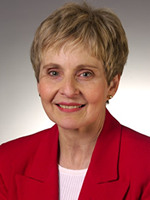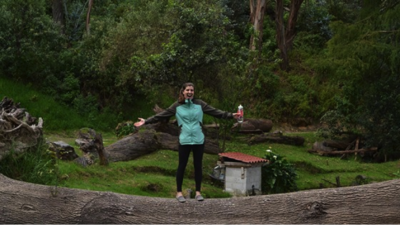FASS Blog – Second Chances and Student Success: Carleton’s Enriched Support Program Celebrates 20 Years
It’s a common problem for students and admissions offices alike: numbers don’t always tell the whole story.
20 years ago, FASS faculty members saw missed opportunities in admission policies that don’t always see the personal situations behind high school grades and decided to do something about it. Today, the Enriched Support Program (ESP), a one-year transition program addressing that policy gap, is one of the University’s most innovative success stories. A first in Canada, the program helps hundreds of students a year reach their true potential.
The stories on ESP’s website show that potential clearly.
Family, social, economic and cultural factors were roadblocks for some students on the way to University, and admissions standards could have been yet another. With the helping hand of ESP, many went on to graduate. Others continued their studies and earned professional and graduate degrees – ESP counts teachers, lawyers, and PhD graduates among their success stories. For many, post-secondary goals simply weren’t reflected in their grades, but through ESP they were able to prove that a degree program was where they belonged.
After 20 years, over 3,200 of these students have proven Carleton’s thinking right. The unprecedented program has evolved into a unique and structured opportunity for students from varied backgrounds, placing hundreds of them in degree programs. Its Aboriginal student stream (AESP), introduced in 2003, was designed to increase Aboriginal student participation at university and support the needs of Aboriginal learners.
But looking back at so many of these accomplishments, as the program celebrates a milestone this year, many acknowledge its first steps were a challenge. Carleton University was founded in 1942 and expanded to meet the needs of returning veterans. Part of its tradition has included offering broader access to higher education. However, as the university underwent a renewal process in the mid-90s, some of its faculty sought new ways to welcome non-traditional students while recognizing that merely opening the doors was an inadequate response to the needs of these students.
FASS faculty members and program co-founders Dr. Aviva Freedman and Dr. Dennis Forcese recognized that offering opportunities for participation was one part of the puzzle, while providing adequate supports to ensure students’ success once they were here, was another. “We wanted,” Aviva remembers, “to address these challenges, and to make sure we were providing appropriate support, pedagogy and curriculum.”

To that end, Aviva applied for a Teaching and Learning Fellowship for the ‘96/’97 year, to fund a pilot program. The program allowed a small group of 42 students, who would not normally have been accepted into university, conditional entry after an initial stringent screening. They were then enrolled in first-year university courses and required to enrol in Enriched Support Workshops which provided contextualized academic skills and support (and later provided a model for the PASS program, another CIE initiative). The ESP cohort was taught and evaluated in exactly the same way as all other students in the courses. This ensured the credibility of the program – in terms of both students’ performance and the authenticity of their academic experience. At the same time, Dennis Forcese worked to create the institutional structures for this new pathway. Now, students would have the opportunity to realize their potential through the bridge-to-a-degree program that the pilot created.
Today, all of this has evolved into a program sought by hundreds of students a year, housed by the Centre for Initiatives in Education (CIE). ESP provides a supportive transition year to a variety of learners: those who whose previous academic record may be inconsistent, students who want a supported first-year experience, or mature learners who are apprehensive about returning to studies after an absence.
Over the years, those of us who work with the program have had the privilege of working with an amazing variety of students – it’s difficult to choose just a few stories to highlight. I remember very well the former firefighter who was injured on the job and forced to rethink his career. He returned to school through the ESP as a mature learner, earned his degree and went on to achieve his goal of becoming a teacher. Another student, Kim Taylor, is profiled in Carleton Now as part of an ESP 20th anniversary success stories series. Kim lacked confidence and focus in high school but with support from our program, she worked hard to establish better habits and stronger skills. A Carleton grad, she now works to help develop the potential in others through her job with Up with People.

Our students have included cancer survivors, single parents, and mature learners, recovering addicts, refugees and differently-abled students. We’ve had students who have come from impoverished backgrounds, who made poor decisions in their teen years that threatened to limit their future pathways. Some experienced bullying, or the loss of a parent in high school, or were working too many hours to contribute to their family income. And others were high school students who failed to make the most of their high school years and have simply needed a second chance to prove their ability. Through determination and will, they have made use of this opportunity to earn degrees and open up new possibilities for their lives.
It’s an experiment that has become a best practice, with connections and recruitment efforts that now extend across the province, to charitable and not-for-profit communities and to other institutions. Students, staff and friends alike plan to mark the occasion this year with an official 20th-anniversary celebration this October.
It’s all about realizing potential. Since 1996, the success of so many students has made this program a real cause for celebration.